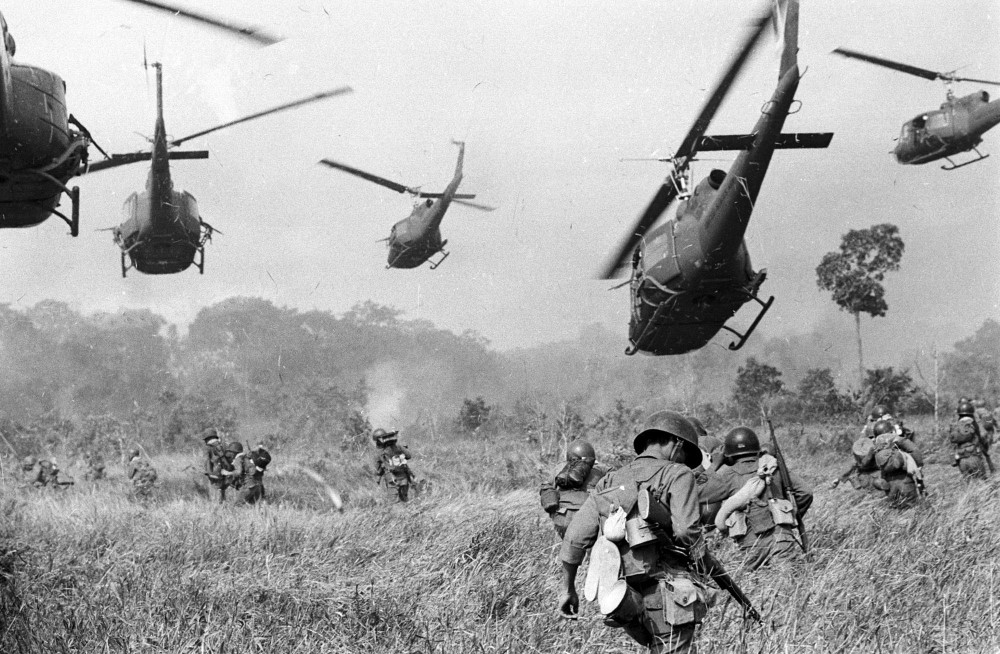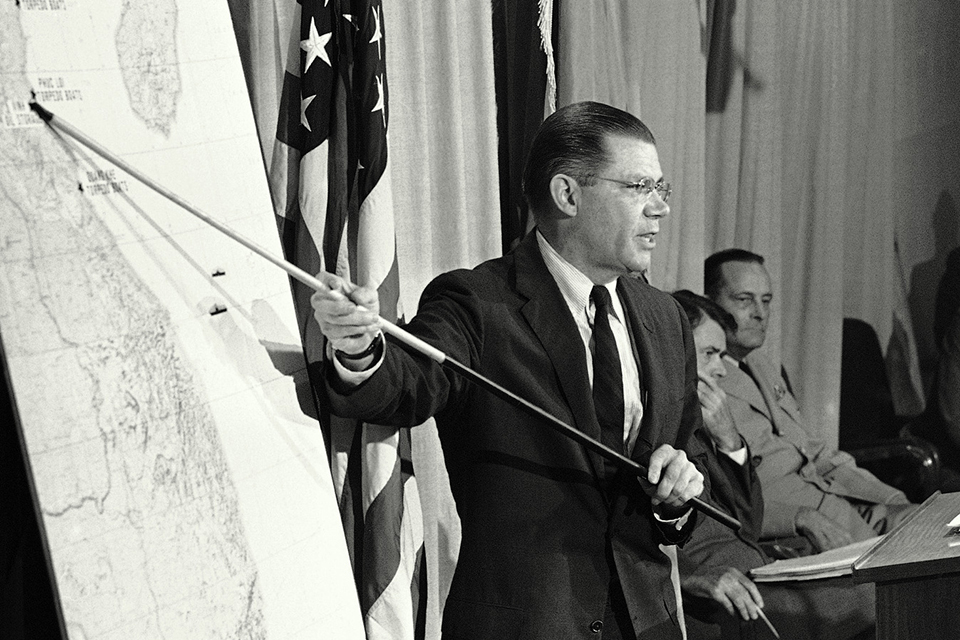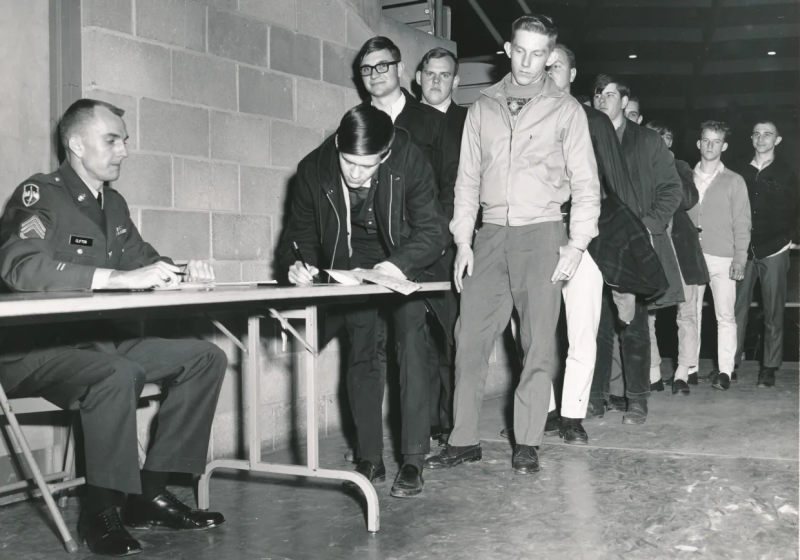The Study
[March 1965, AP Photos]
[March 1965, AP Photos]

Following the state of disarray caused by WWII, the Viet Minh (backed by communist China) took over North Vietnam territories and conflicted with democratic South Vietnam over their political ideals.
In response to an unprovoked attack on US ships by Northern Vietnam forces, Congress passed the Gulf of Tonkin Resolution in August 1964.
“That the Congress approves and supports the determination of the President, as Commander in Chief, to take all necessary measures to repel any armed attack against the forces of the United States and to prevent further aggression.”
- "Gulf of Tonkin Resolution," Miller Center, August 10, 1964

Robert McNamara detailing Gulf of Tonkin, August 5, 1964, AP Photos

"Young military recruits of the Vietnam War," 1967, Stuart Lutz/Gado/Getty Images
The U.S. joined forces with South Vietnam against the Viet Minh. Consequently, this initiated a proxy war between the capitalist U.S. and communist China.
“U.S. objective in South Vietnam is not to 'help friend'; but to contain China.”
- Robert McNamara, "Pentagon Papers," June 13, 2011

"Secretary of Defense Robert McNamara holds a news conference at the Pentagon," November 17, 1961, AP Photos
The escalation of the war caused the Secretary of Defense Robert McNamara to start the Vietnam Study Task Force in June 1967, in which military analysts created a secret study of the Vietnam War.
“[I] thought we should seek to facilitate such study in order to help prevent errors in the future.”
- Robert McNamara, March 19, 1995, In Retrospect: The Tragedy and Lessons of Vietnam
This classified study, later known as the Pentagon Papers, contained information about justifications for U.S involvement, funding, operations, probability of winning, and intel on the immense disadvantage the Southern Vietnamese (and the U.S) had. It also contained evidence of U.S involvement in the coup of the South Vietnamese President Diem and other international complicities.
“Yet it would be folly for the United States to neglect, or to regard with indifference, political developments of recent months which raise questions about the ability of the Government and people of South Viet-Nam to support each other effectively in their contest with communism.”
- McGeorge Bundy, special Assistant to President Kennedy in, "Pentagon Papers," June 13, 2011
“The choices were there: (1) continue to plod along in a limited fashion with Diem — despite his and Nhu’s growing unpopularity; (2) encourage or tacitly support the overthrow of Diem, taking the risk that the GVN might tumble and/or accommodate to the VC (Viet Cong) ; and (3) grasp the opportunity — with the obvious risks of the political instability in South Vietnam to disengage […] The second course was chosen mainly for the reasons the first was rejected — Vietnam was thought too important; we wanted to win; and the rebellious generals seemed to offer that prospect.”
- "Pentagon Papers" Part IV B, National Archives
"Pentagon Papers," June 13, 2011
"Pentagon Papers," June 13, 2011
"Pentagon Papers," June 13, 2011
"Pentagon Papers," June 13, 2011